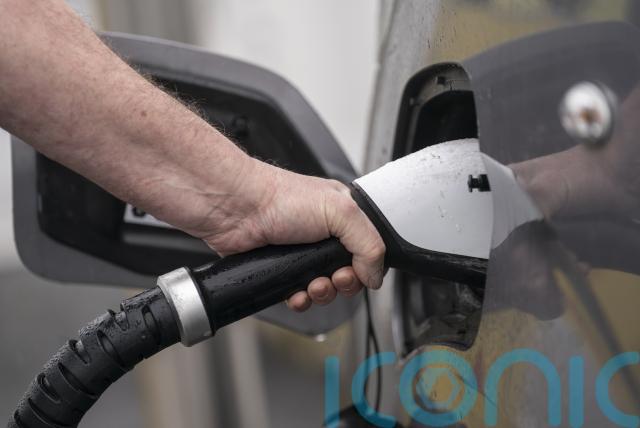
A “fairer” tax system for drivers is needed, the Government said, amid speculation an electric vehicle (EV) pay-per-mile scheme will be announced in the Budget.
Chancellor Rachel Reeves will unveil a policy to introduce a 3p per mile tax for EVs when she delivers her November 26 Budget, the Daily Telegraph reported.
The scheme is set to be implemented in 2028 following a consultation, and would cost EV drivers an average of £250 per year, according to the newspaper.
Motoring groups expressed concern that such a tax could put some people off from switching to electric motoring.
The Treasury faces a reduction in revenue from fuel duty as more drivers move from petrol or diesel cars to EVs.
Fuel duty raised just under £25 billion in the 2024/25 financial year.
Successive governments have found the prospect of introducing per-mile charges for driving – sometimes referred to as road pricing – too politically toxic.
The Daily Telegraph said Ms Reeves’s EV scheme will involve users estimating how far they will drive over the following 12 months, and making an extra payment on top of vehicle excise duty (VED).
If they drive more they will need to top up this amount, while some of the money would carry over to the next year if someone clocks up fewer miles.
Journey examples of a 3p per mile fee include £12 between London and Edinburgh, £5 between Cambridge and Bristol, and £2 between Liverpool and Leeds.
EVs’ exemption from VED was removed in April.
A Government spokesperson said: “Fuel duty covers petrol and diesel, but there’s no equivalent for electric vehicles.
“We want a fairer system for all drivers whilst backing the transition to electric vehicles, which is why we have invested £4 billion in support, including grants to cut upfront costs by up to £3,750 per eligible vehicle.
“Just as it is right to seek a tax system that fairly funds roads, infrastructure and public services, we will look at further support measures to make owning electric vehicles more convenient and more affordable.”
AA president Edmund King acknowledged that the Treasury faces losing fuel duty revenue, but urged the Government to “tread carefully” to avoid slowing the transition to EVs.
He said: “We need to see the detail of this proposal to ascertain whether these new taxes will be equitable or a poll tax on wheels.”
The so-called poll tax – introduced by Margaret Thatcher’s government in Scotland in 1989 and then England and Wales the following year – was a fixed payment for all adults, which sparked violent protests.
Industry body the Society of Motor Manufacturers and Traders said in a statement that pay-per-mile fees for EVs would be “entirely the wrong measure at the wrong time”.

It continued: “Introducing such a complex, costly regime that targets the very vehicles manufacturers are challenged to sell would be a strategic mistake.”
Ginny Buckley, chief executive of EV advice site Electrifying.com, accused the Government of “mixed messaging”.
She said: “Drivers are being encouraged to go electric, then hit with the threat of new taxes.
“You can’t drive the EV transition with one foot on the accelerator and the other on the brake.”
Steve Gooding, director of motoring research charity the RAC Foundation, said the Treasury’s “fuel duty cash-cow” is coming to an end.
He went on: “If the Chancellor is tempted to go down the route of introducing a distance charge for EV drivers but still encourage EV take-up, then she needs to look at how to cut the cost of public charging for the millions of people who don’t have the option to charge their cars at home.”
Ian Plummer, chief commercial officer at online vehicle marketplace Autotrader, called for “more carrot and less stick if we’re serious about the electric transition”.
He added: “The Chancellor clearly needs to raise revenue but if she wants to encourage EV adoption, she should think extremely carefully before introducing pay-per-mile charging for EVs.”
Snap polling by YouGov has shown that Britons tend to support the idea of a pay-per-mile tax for EVs.
A survey of 5,833 adults in Great Britain carried out on November 6 found that 43% either “strongly support” or “somewhat support” the idea, while 34% either “somewhat oppose” or “strongly oppose” it. Some 23% “don’t know”.
YouGov also found that older people tend to favour the idea more than younger people.
Subscribe or register today to discover more from DonegalLive.ie
Buy the e-paper of the Donegal Democrat, Donegal People's Press, Donegal Post and Inish Times here for instant access to Donegal's premier news titles.
Keep up with the latest news from Donegal with our daily newsletter featuring the most important stories of the day delivered to your inbox every evening at 5pm.